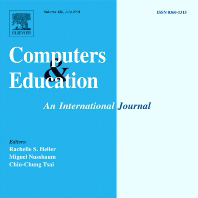 New research from the Developing in Digital Worlds team has been published in the book, Deeper Learning, Dialogic Learning, and Critical Thinking: Research-based strategies for the classroom edited by Emmanuel Manalo. The chapter is “Online Written Argumentation: Internal Dialogic Features and Classroom Instruction” by Naomi Rosedale, Stuart McNaughton, Rebecca Jesson, Tong Zhu, & Jacinta Oldehaver. Full information is available on the Routledge website.
New research from the Developing in Digital Worlds team has been published in the book, Deeper Learning, Dialogic Learning, and Critical Thinking: Research-based strategies for the classroom edited by Emmanuel Manalo. The chapter is “Online Written Argumentation: Internal Dialogic Features and Classroom Instruction” by Naomi Rosedale, Stuart McNaughton, Rebecca Jesson, Tong Zhu, & Jacinta Oldehaver. Full information is available on the Routledge website.
About the book:
Deeper learning, dialogic learning, and critical thinking are essential capabilities in the 21st-century environments we now operate. Apart from being important in themselves, they are also crucial in enabling the acquisition of many other 21st-century skills/capabilities such as problem solving, collaborative learning, innovation, information and media literacy, and so on. However, the majority of teachers in schools and instructors in higher education are inadequately prepared for the task of promoting deeper learning, dialogic learning, and critical thinking in their students. This is despite the fact that there are educational researchers who are developing and evaluating strategies for such promotion. The problem is bridging the gap between the educational researchers’ work and what gets conveyed to teachers and instructors as evidence-based, usable strategies.
This book addresses that gap: in it, leading scholars from around the world describe strategies they have developed for successfully cultivating students’ capabilities for deeper learning and transfer of what they learn, dialogic learning and effective communication, and critical thought. They explore connections in the promotion of these capabilities, and they provide, in accessible form, research evidence demonstrating the efficacy of the strategies. They also discuss answers to the questions of how and why the strategies work.
A seminal resource, this book creates tangible links between innovative educational research and classroom teaching practices to address the all-important question of how we can realize our ideals for education in the 21st century. It is a must read for pre-service and in-service teachers, teacher educators and professional developers, and educational researchers who truly care that we deliver education that will prepare and serve students for life.
 Our Developing in Digital Worlds research team have published an article entitled “How Digital Environments in Schools Might Be Used to Boost Social Skills: Developing a conditional augmentation hypothesis” in the peer-reviewed journal Computers & Education (volume 126). Click here to view the journal.
Our Developing in Digital Worlds research team have published an article entitled “How Digital Environments in Schools Might Be Used to Boost Social Skills: Developing a conditional augmentation hypothesis” in the peer-reviewed journal Computers & Education (volume 126). Click here to view the journal.
Abstract: How Digital Environments in Schools Might Be Used to Boost Social Skills
The use of online devices, tools and technologies in schools is seen as being able to promote ‘21st century’ skills, specifically inter personal (e.g., being empathetic, taking others’ perspectives, cooperation and collaboration) and intra personal skills (e.g., persistence and self-control). We review theoretical rationales for and, where available, research evidence about the impact of digital tools and technologies on the development of these skills under two conditions. One is where there are direct effects of access to and use of digital technologies relatively independently from other influences of the teacher. The evidence suggests powerful mechanisms are afforded directly, such as feedback, social learning, agentive learning and play (game-based learning), but that effects are variable and there are both positive and negative influences on skills. The second condition is when the digital environments are mediated by teaching. The evidence is that both effectiveness and the consistency of effects of digital environments depend on the deliberate design and management of the tools and their functions. Explanations relate to the mediating effects of the activity structures and how they are designed, the role of the teacher in both that design and specific instructional acts, and the guided actions of interlocutors through digital devices. We propose a teacher ‘conditional augmentation’ hypothesis: teachers’ augmentation adds instructional power to the direct effects of digital technologies.
